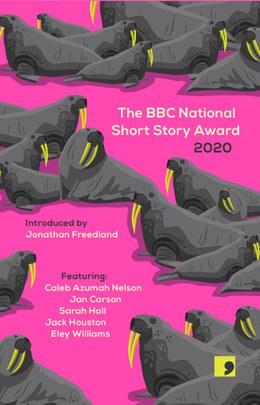
I come to The Carhullan Army relatively late, after it has been pretty firmly established as a significant novel – it was shortlisted for the Clarke Award, won the John Llewellyn Rhys Prize and Tiptree Award , and came top in the Torque Control readers’ poll of best sf novels by women from 2001-10. It threw me a little at first to discover what an unassuming book this is; its narrative voice is not undescriptive, but is far more focused on what it wants to say than on how it’s saying it – yet that same clarity is what gives Sarah Hall’s novel much of its heft.
The voice belongs to a woman who claims only the name ‘Sister’; she left behind her life of pointless labour and repression in Rith (i.e. Penrith), and fled to the farm at Carhullan, high in the Cumbrian hills. There, a self-sufficient community of women – established and led by the charismatic ex-soldier Jackie Nixon – lived beyond the reach of the Authority’s oppressive regime. Though unregistered, and therefore effectively outlaws, the Carhullan women were mostly pacifist; though Jackie Nixon had other ideas, and had been creating a militaristic unit within the commune, to take the fight back to the Authority. The story of The Carhullan Army is not that of the eventual battle – we learn the outcome of that on the very first page – but rather that of Sister’s personal journey to, and transformation within, Carhullan.
The physical and personal – landscape and character – are intimately connected in The Carhullan Army. The town belongs to the Authority, the extremist faction who came to power in the wake ofBritain’s environmental and economic turmoil; it’s a grey, harsh, decaying place. The countryside, in contrast, is the domain of the Carhullan women: Sister knows that Jackie Nixon comes from old Cumbrian stock, and has the feeling, as she travels further away from Rith, of entering Jackie’s territory. At the start of her journey, Sister considers herself reasonably familiar with the landscape, and a competent hiker; her first encounter with the Carhullans shows how much less at home she is in this environment than are they, and hence also how far apart she and they are ideologically. Towards novel’s end, when Sister has become one of Carhullan’s insurgents, she reflects on how Jackie’s training has changed her, and explicitly links this with the landscape:
She broke down the walls that had kept us [women] contained. There was a fresh red field on the other side and in its rich soil were growing all the flowers of war that history had never let us gather. It was beautiful to walk in. As beautiful as the fells that autumn. (p.197)
This passage also points to one of the other central themes: that of gender and violence. There’s a gendered element to the Authority’s oppression: women are forced to have contraceptive implants inserted, and Hall clearly frames this as a violation. Jackie’s thoughts are of retaliation: ‘What do you think, Sister?’ she asks. ‘Do women have it in them to fight if they need to? […] ‘Do we have to submit to survive?’ (p. 116). Sister replies: ‘I think we’re capable of attacking when it’s something worth fighting for’ (p. 117) – but it’s only over time, and subtly, that Jackie brings Sister around to living those words wholeheartedly. Of course, the issue is intractable: Sister’s reasons for fighting against the Authority are entirely understandable; but, to do so, she becomes like them, using their methods.
Given the time at which I read The Carhullan Army, my thoughts turn naturally towards Jane Rogers’ Clarke-winning The Testament of Jessie Lamb, which also portrays a female protagonist making her way quite reasonably towards a decision with unreasonable implications. I appreciate both novels for the clarity with which they depict the transformations of their respective characters, and for how fully they show the harshness and complexity of what their choices mean. But I think Hall’s novel ultimately has the edge, because Sister’s decision feels more grounded in the world than Jessie’s; and there’s something more forceful about seeing an adult, rather than an adolescent, going through that kind of process. The Carhullan Army is a quietly powerful novel that lives long in the mind; one that I suspect rewards – and that I’m certain deserves – repeated readings.
Elsewhere
Sarah Hall’s website
Some other reviews of The Carhullan Army: Victoria Hoyle for Strange Horizons; Richard Palmer at Solar Bridge; Nic Clarke at Eve’s Alexandria.
Like this:
Like Loading...


 Tomorrow is
Tomorrow is
Recent Comments